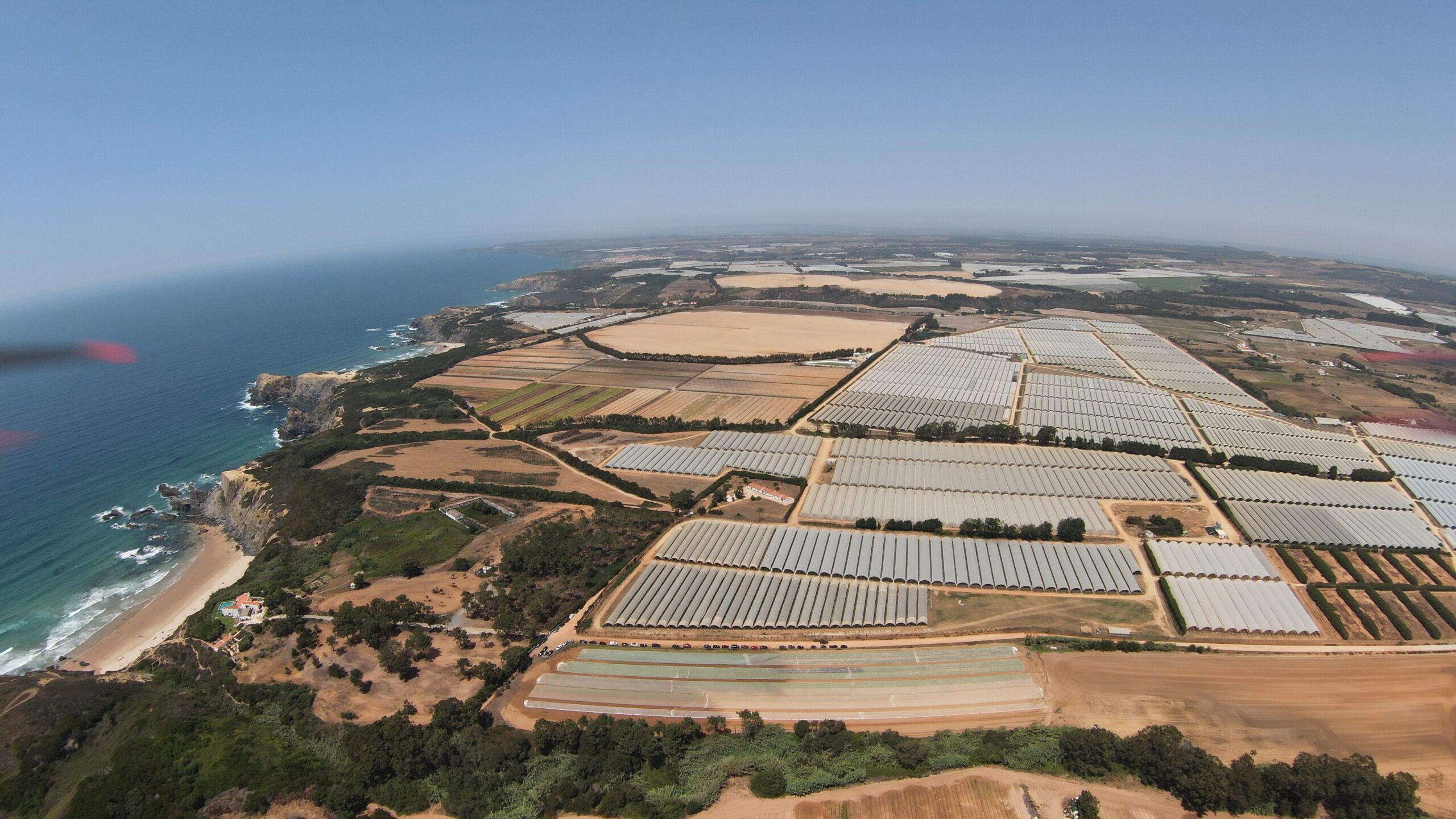AL JAZEERA (11/10/2022)
Sitting in her home in a white-washed village nestled in Alentejo’s gently rolling hills, 92-year-old Inácia Cruz likes to reminisce about simpler times.
“This region was rich in bread,” she says wistfully. “We would produce olive oil, cereals and cork. We didn’t need to buy things from abroad. We grew our own food and neighbours helped each other.”
Over the decades, she saw a radical transformation of the landscape of Odemira, a rural municipality in the southwestern Alentejo region.
In the 1960s, a dam was built under the Estado Novo dictatorship, with promises that irrigation would develop agriculture and improve production in the dry area. The reservoir was named after Inácia’s village, Santa Clara.
While some farmers replaced the traditional patchwork of cereal fields, grassland and fallow land with irrigated crops, it was only in the late 1980s that industrial farming picked up, with the establishment of hundreds of hectares of strawberry greenhouses by millionaire French businessman Thierry Roussel.
”Some of my neighbours worked there, in the Frenchman’s greenhouses, but the business failed and they were never paid the salaries they were owed,” says Inácia.
Even with subsidies from the European Union and funding from the Portuguese state and a state-owned bank, the 550-hectare (1,359-acre) greenhouses went bankrupt in just a few years, ending with an estimated $30m loss.
Roussel fled Portugal, leaving behind his debts, the land littered with plastic and the soil eroded by the heavy use of agrochemicals.
But in the last 18 years, foreign companies have started investing in Odemira again, turning the region into a hub for intensive monoculture farming.
The region’s mild climate, which allows longer growing seasons, started attracting multinational berry producers again in 2004, when American company Driscoll’s, the world’s largest berry company with a monopoly of patented plants, established greenhouses there to feed Europe’s growing appetite for fresh berries (…)
